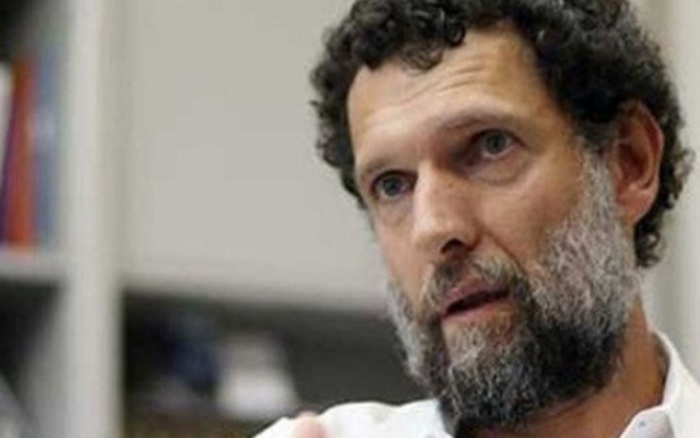Jailed Turkish businessman and political activist Osman Kavala has said he would be uncomfortable if he were released by a court in Turkey as part of a deal made with European countries that extracted concessions from them in return for his freedom.
“Relying on a deal that would be made with Europe for the dispensing of justice is an uncomfortable issue for me,” Kavala said.
Kavala, who was detained on terrorism charges in October 2017, sent a letter to Karar daily columnist Yıldıray Oğur in response to a column he wrote on the weakness of Kavala’s indictment.
“Hoping that foreign institutions would put more value on my freedom is eroding the self-confidence of being a [Turkish] citizen,” Kavala said.
After his incarceration, several European politicians and institutions, including the European Parliament’s Turkey rapporteur Kati Piri and the French Foreign Ministry called on Turkey to immediately release Kavala.
On Tuesday pro-government columnist Abdülkadir Selvi wrote that Turkey had a chance to recover strained relationships with the European Union with the release of Kavala. He said Turkey had that opportunity with the US over the release of American pastor Andrew Brunson, who had been detained in Turkey for almost two years on terrorism charges.
“Despite everything, I don’t think it is far-fetched that pretrial detention practices could become more compatible with the [Turkish] Constitution and the European Court of Human Rights,” Kavala added.
“A few positive remarks from our leaders could easily change these detention practices.”
An İstanbul court ruled to arrest Kavala on Nov. 1, 2017 following 13 days in police custody on charges of attempting to overthrow the constitutional order and attempting to remove the government of the Turkish Republic.
Just before his arrest, President Recep Tayyip Erdoğan declared Kavala a criminal and the “Turkish Soros,” implying that Kavala was plotting to undermine his rule through civil society organizations.
Kavala is known for his contributions to nongovernmental organizations and especially for his support for Kurdish political and human rights activists in Turkey.

